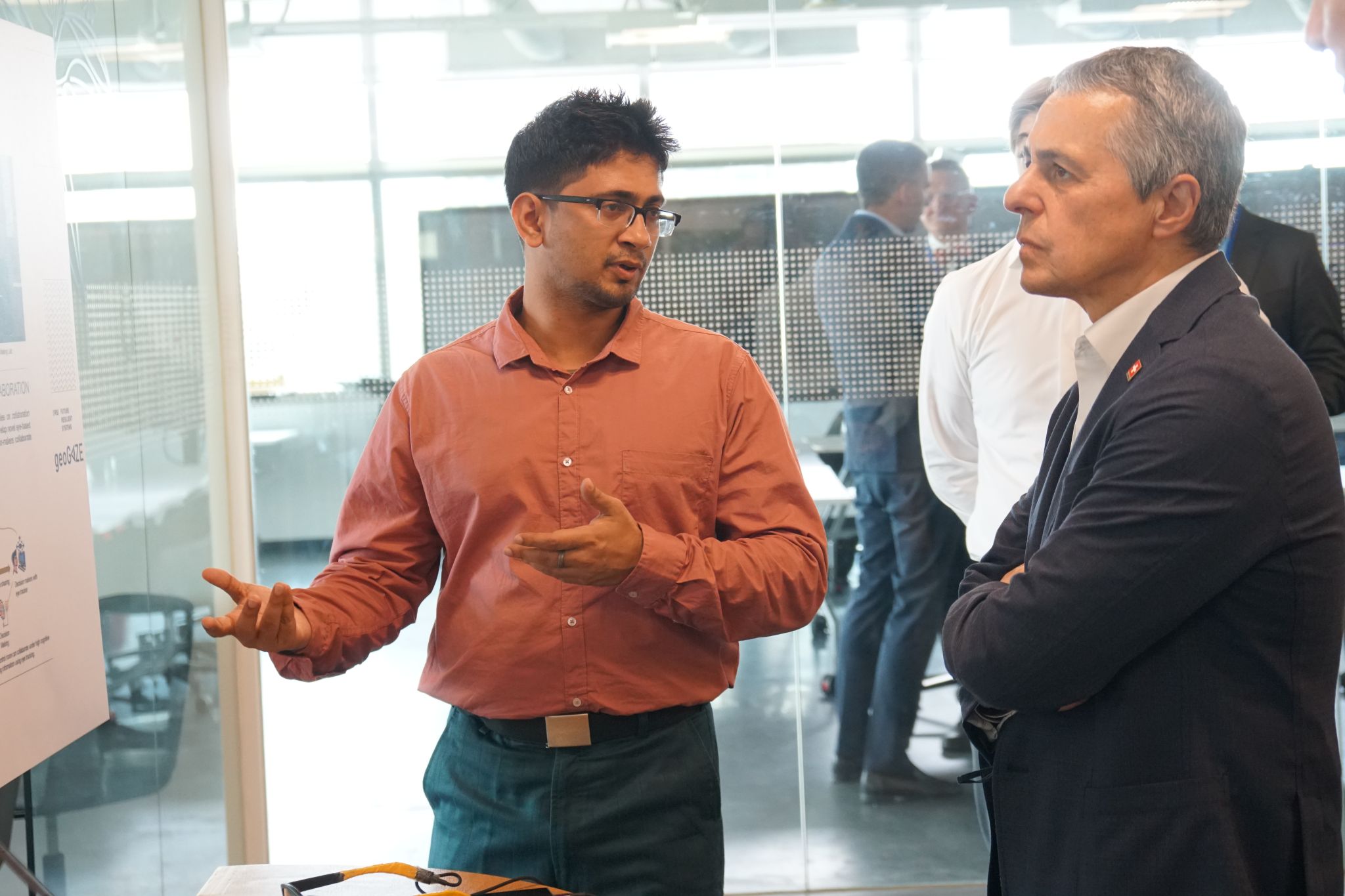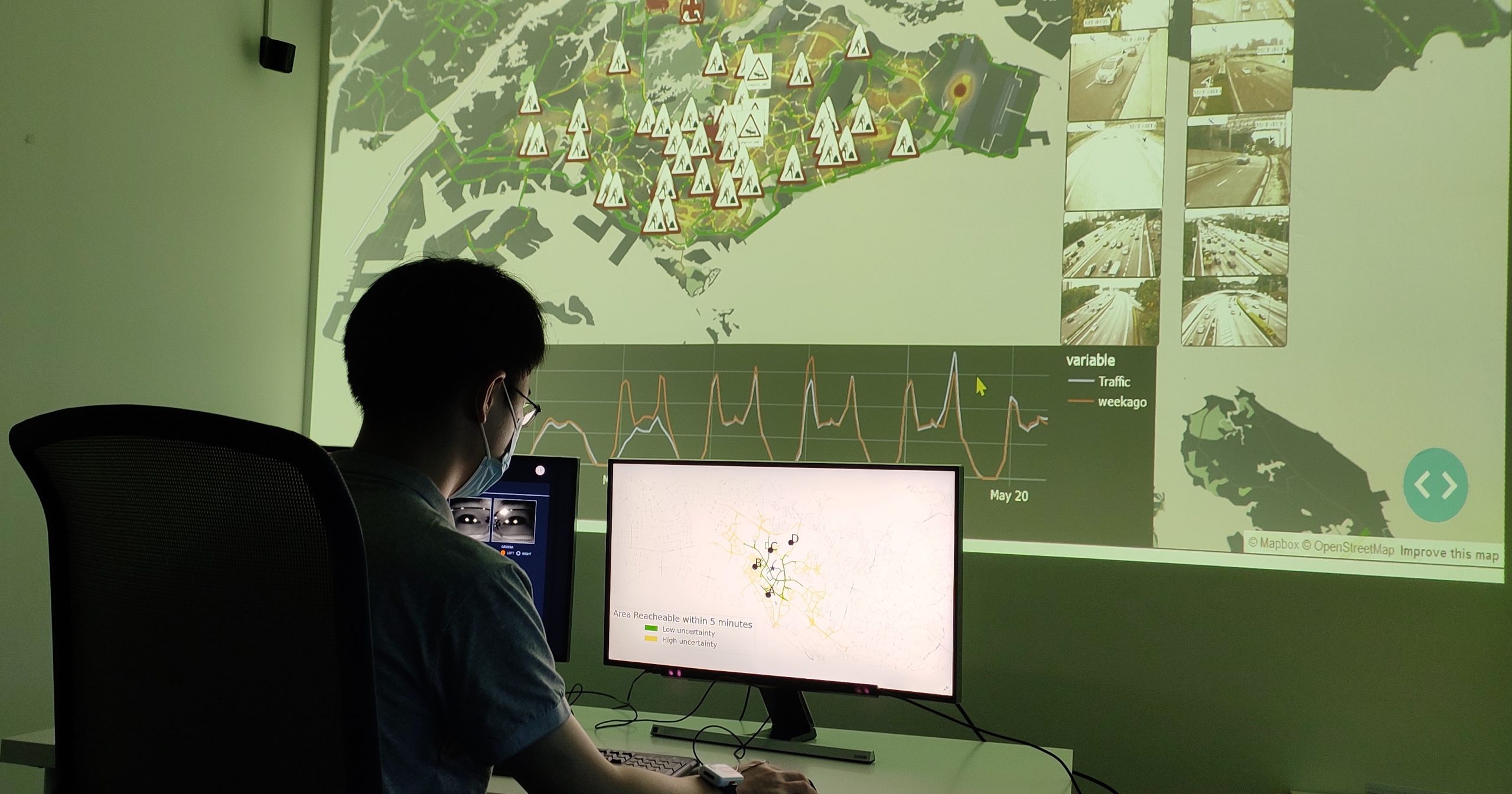Swiss Council visit to Singapore-ETH Centre

On the 4th of August, the Singapore-ETH Centre (SEC) had the privilege of hosting the Swiss federal council member Mr. Ignazio Cassis, along with Ambassador Heinrich Schellenberg and Ambassador Frank Grütter of the Embassy of Switzerland in Singapore. The day was filled with insightful discussions between the visiting dignitaries and SEC’s leadership, highlighting the importance of international collaboration in advancing scientific and technological research.
A doctoral student from the geoGAZElab, Suvodip Chakraborty, demonstrated “Improving Resilience in Control Rooms Through Eye Tracking”, a technology that promises to revolutionize control room operations. By employing eye-tracking technology, geoGAZElab work aims to enhance the effectiveness and efficiency of control room operators, thereby bolstering overall system resilience. This research holds the potential to reshape control room dynamics and contribute significantly to the broader fields of human-computer interaction and cognitive science.
The demonstration garnered considerable interest from the visiting Swiss delegation and SEC’s academic community. Mr. Ignazio Cassis, expressed his keen interest in the innovative research being conducted at the SEC. The Swiss delegation’s presence underscored the significance of this scientific exchange and hinted at the strong ties between Switzerland and Singapore in academic research.
In addition to Chakraborty’s demonstration, the visit included an exhibition tour showcasing other SEC’s research endeavours. The showcased projects spanned a spectrum of disciplines, from sustainable urban planning to future food supply.











